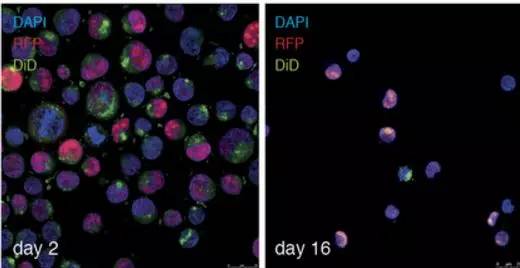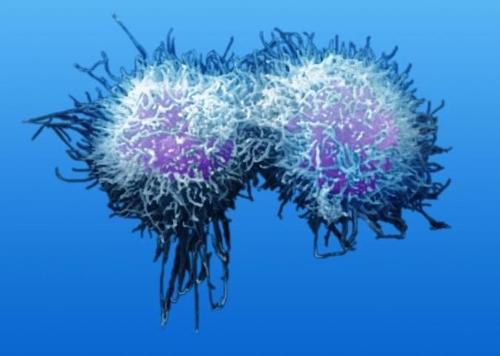In a new study, Spanish researchers identified metastasis-initiating cells through a specific marker called protein CD36. This protein found in the membrane of tumor cells is responsible for the uptake of fatty acids. CD36 activity and dependence on lipid metabolism can distinguish metastatic initiating cells from other tumor cells. The relevant research results were published online in the Nature Journal on December 7, 2016, and the title of the paper is "Targeting metastasis-initiating cells through the fatty acid receptor CD36."

The researchers found metastatic CD36+ cells in samples from patients with oral cancer with varying degrees of invasiveness. In the analyzed oral cancer, a small number of cells were found to have the ability to initiate metastasis. Tumors that do not metastasize express CD36 such that they are metastatic.
Furthermore, the researchers confirmed that the effect of CD36 on metastasis is the same for melanoma cells and breast cancer cells. Similarly, statistical analysis of patient samples revealed that ovarian cancer, bladder cancer, and lung cancer metastasis are also dependent on CD36.

Salvador Aznar Benitah, author of the paper and director of the Stem Cell and Cancer Laboratory at the IRB Barcelona in Barcelona, ​​Spain, said, "Although we have not performed such tests in all tumor types so far, we can declare that CD36 is metastatic. A universal marker of cells is also the first marker of transfer specificity I know."
Gloria Pascual, the first author of the paper, said, “We are now able to obtain metastatic cells in the laboratory. This will allow us to track them and study their distribution in the tumor, where they are attached, when they leave it, or Why are they so sensitive to fat and other problems?"
Aznar Benitah pointed out, "We expect this research to have a major impact on the scientific community and further accelerate the transfer study. We hope to be able to verify the potential of CD36 as an anti-metastatic treatment."
Fat and transfer
Given the role of fat metabolism in metastasis and the function of CD36 in this process, the next question for researchers is: Does fat intake have a direct impact on metastasis? The researchers gave mice a high-fat diet (15% more fat than the normal diet, equivalent to the so-called "buffet diet"). They then inoculated the oral tumor samples into mice, which resulted in tumor metastasis in 30% of the mice under standard dietary conditions. Strikingly, about 80% of mice produce more of a larger metastatic tumor under conditions of eating a high-fat diet and thus having a higher lipid content in the blood.
The researchers also tested the effects of a specific fatty acid, palmitic acid, on metastasis. This plant-derived fatty acid is a major component of palm oil, and is also present in lower proportions in coconut oil and other oils, and is used in a variety of processed foods. They treated palmoma with palmitic acid for two days and then injected the oral tumor into mice on a standard diet. They observed an increase in the proportion of metastatic tumors in these mice by 50% to 100%. That is to say, all mice develop tumor metastasis in a CD36-dependent manner.
Aznar Benitah cautions, “There seems to be a direct correlation between fat intake and increased CD36-dependent metastatic potential in mice vaccinated with human tumor cells. More research is needed to explain between diet and metastasis. This intriguing relationship, after all, is recording a significant increase in saturated fat and sugar intake in industrialized countries."
Aznar Benitah explains, “As has been confirmed in some tumors such as colon cancer, and as we have demonstrated in this study, fat is essential for the function of the body, but uncontrolled intake can Health has an impact."
Organic Oat Grass Powder,Oat Leaf Powder,Oat Grass Powder,Bulk Organic Oat Grass Powder
Hengshui Shanzhi Health Drink Co., Ltd , https://www.grasspowder-sz.com